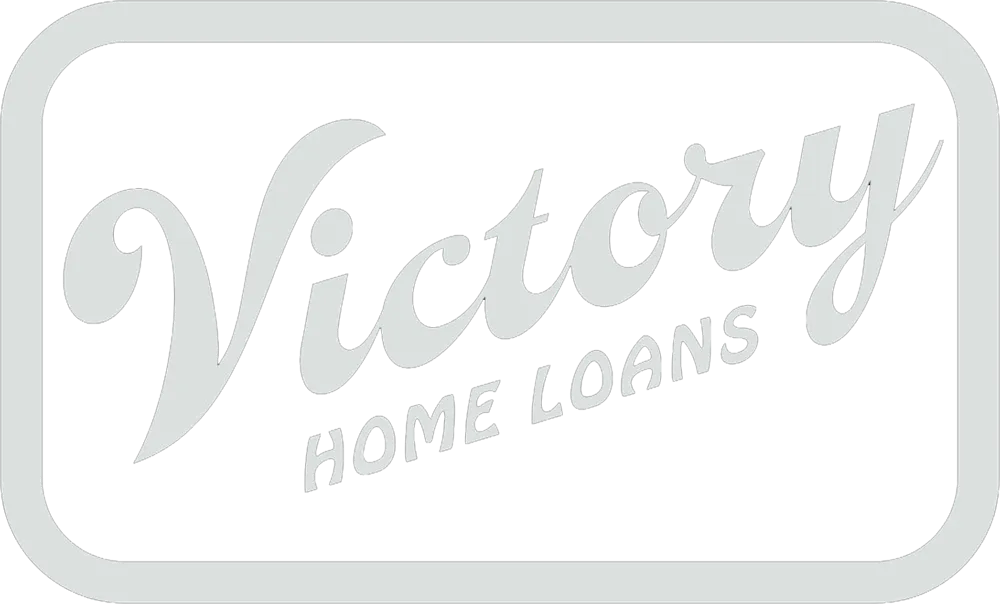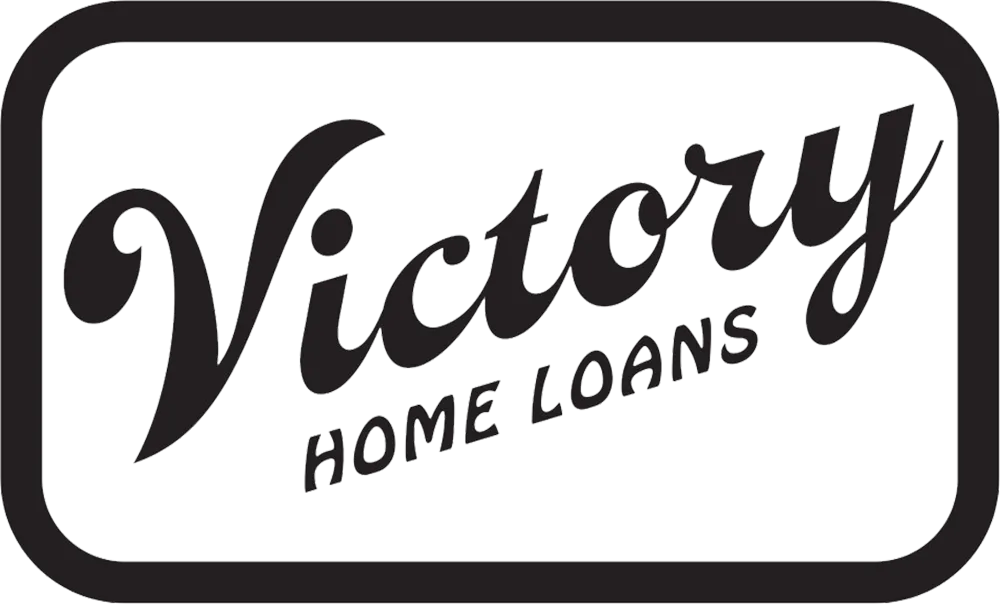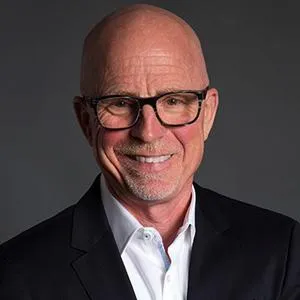
Don't Let Finances Get in The Way of Retirement.
See how a reverse mortgage can significantly improve cash flow and quality of life.
A secure retirement begins with a reverse mortgage.
Supplement your retirement income.
Stay in your home.
Pay off your existing mortgage.
Fund your healthcare expenses.
A secure retirement begins with a reverse mortgage.
Supplement your retirement income.
Stay in your home.
Pay off your existing mortgage.
Fund your healthcare expenses.

Testimonials
Client Experiences

Lisa Baker
Home Owner
"I regularly refer my buyers to Stuart and his team and have for many years. They are trustworthy and efficient at what they do, so I know that my buyers are getting the best deal possible. Occasionally, I get a buyer who has had a financial complication that would kill most transactions, but in Stuart's hands, even the crazy difficult file gets to the finish line against all odds and the buyers get the house! Thank you, Stuart, Evan, Kelly and Tara for all the years of excellent service and know-how!"

Shanna Browning
Home Owner
"Stuart and team are knowledgeable, trustworthy, hard working and the best part is they are a pleasure to work with (hard to find these days). We end up moving every couple of years and on every house we’ve purchased he’s always worked hard to get us the best interest rate and given us all available options so we can be within budget for our monthly mortgage payment. 5 stars and A+! We love Victory Home Loans!"

Nikos Lilles
Home Owner
"Stuart, Kelly & the rest of the team at Victory Home Loans are true professionals! I've been lucky to work and partner with them as a Realtor and a Client for years, and no matter the situation they ALWAYS get us across the finish line. I highly recommend the Victory Home Loans team to all my friends, family, and clients."
Is A Reverse Mortgage Right For Me?
Supplement Retirement Income: Many retirees have limited sources of income, and a reverse mortgage can provide a regular stream of cash to cover daily living expenses, medical bills, and other financial needs, allowing them to maintain their quality of life.


Stay in Your Home: For seniors who want to remain in their current home but are struggling to afford the costs of homeownership, a reverse mortgage can help by providing funds for necessary home repairs, property taxes, or insurance, which can allow you to age in place comfortably.
No Monthly Mortgage Payment: If you still have an existing traditional mortgage, a reverse mortgage can be used to pay off that mortgage, eliminating monthly mortgage payments and reducing financial stress.


Fund Healthcare Expenses: As you age, healthcare costs can increase significantly. A reverse mortgage can help cover medical bills, long-term care, or health-related expenses, ensuring that you have access to necessary care without depleting your savings.
Boost Your Retirement Savings.
Established in 1993, family owned and operated, now in 15 states. Helping Homeowners Win since 1993.
Retirement savings relative to inflation is at the lowest point in decades however wealth in Home Equity has never been higher in US history. Utilizing home equity to improve quality of life and maintain independent living has never been easier or more affordable until now.
Local Victory Reverse mortgage specialists are trained and certified to help you make the most of your most valuable retirement asset, your home equity.

Stuart Brown
CEO | Mortgage Broker
NMLS: 76880
817-559-1127
Frequently Asked Questions
Does my home qualify?
Eligible property types include single-family homes, 2-4 unit properties, manufactured homes (built after June 1976), condominiums, and townhouses. Co-ops do not qualify.
Are there any special requirements to get a reverse mortgage?
You must own a home, be at least 62, and have enough equity in your home. There are no medical requirements.
A Victor Reverse consultant must perform a financial assessment of every reverse mortgage borrower to ensure he or she has the financial capacity to continue paying mandatory obligations, such as property taxes and homeowner’s insurance, as stipulated in the Loan Agreement. Additionally, a second review is required by a specially trained and certified Reverse Mortgage Underwriter. This is an important step to protect consumers and lenders alike to ensure sound and ethical decisions by all parties.
If a lender determines that a borrower may not be able to keep up with property taxes and homeowner’s insurance payments, they will be authorized to set-aside a certain amount of funds from the loan to pay future charges.
What if I have an existing mortgage?
You may qualify for a reverse mortgage even if you still owe money on an existing mortgage. However, the reverse mortgage must be in a first lien position, so any existing indebtedness must be paid off. You can pay off the existing mortgage with a reverse mortgage, money from your savings, or assistance from a family member or friend.
For example, let’s say you owe $100,000 on an existing mortgage. Based on your age, home value, and interest rates, you qualify for $125,000 under the reverse mortgage program. Under this scenario, you will be able to pay off ALL the existing mortgage and still have $25,000 left over to use as you wish.
Will I lose my government assistance if I get a reverse mortgage?
A reverse mortgage does not affect regular Social Security or Medicare benefits. However, if you are on Medicaid or Supplemental Security Income (SSI), any reverse mortgage proceeds that you receive must be used immediately. Funds that you retain count as an asset and could impact eligibility. For example, if you receive $4,000 in a lump sum for home repairs and spend it all the same calendar month, everything is fine. Any residual funds remaining in your bank account the following month would count as an asset. If the total liquid resources (including other bank funds and savings bonds) exceed $2,000 for an individual or $3,000 for a couple, you would be ineligible for Medicaid. To be safe, you should contact the local Area Agency on Aging or a Medicaid expert.
Under what circumstances should I not consider a reverse mortgage?
Because of the upfront costs associated with a reverse mortgage, if you intend to leave your home within 2 to 3 years, there may be other less expensive options to consider, such as home equity loans, no-interest loans or grants that may be offered by your county government or a local non-profit to repair your home, or a tax deferral program, if you’re having problems paying your property taxes.
Your Victory Reverse Mortgage Consultant is committed to helping you make the most informed choice to achieve your financial goals, including sharing other solutions and helping you seek the advice and answers you need. Our winning team are your Trusted Advisors, not TV celebrities or call center sales associates selling loans. We help you win through empowerment and education.
What are My Payment Plan Options?
You can choose to receive the money from a reverse mortgage all at once as a lump sum, fixed monthly payments either for a set term or for as long as you live in the home, as a line of credit, or a combination of these. To learn more, click here.
How Much Money Can I Get?
The amount of funds you are eligible to receive depends on your age (or the age of the youngest spouse when there is a couple), appraised home value, interest rates, and in the case of the government program, the FHA lending limit, which is currently $1,089,300. If your home is worth more, then the amount of funds you may be eligible for will be based on the $1,089,300 loan limit. In general, the older you are and the more valuable your home (and the less you owe on your home), the more money you can get.
During the first 12 months after closing, a borrower cannot access more than 60 percent of the available loan proceeds. In month thirteen, a borrower can access as much or as little of the remaining funds as he or she wishes.
There are exceptions to the 60 percent rule. If you have an existing mortgage, you may pay it off and take an additional 10 percent of the available funds, even if the total amount used exceeds 60 percent.
How can I use the proceeds from a reverse mortgage?
The proceeds from a reverse mortgage can be used for anything, whether its to supplement retirement income to cover daily living expenses, repair or modify your home (i.e., widening halls or installing a ramp), pay for health care, pay off existing debts, cover property taxes, or prevent foreclosure.
How does the interest work on a reverse mortgage?
With a reverse mortgage, you are charged interest only on the proceeds that you receive. Both fixed and variable interest rates are available. Rates are tied to an index, such as the U.S. Constant Maturity Rate, plus a margin that typically adds an additional one to three percentage points onto the rate you’re charged. Interest is not paid out of your available loan proceeds, but instead compounds over the life of the loan until repayment occurs.
My understanding is that the unused balance in the HECM Line of Credit Option has a growth feature. Does that mean I’m earning interest?
No, you’re not earning interest like you do with a savings account. After the first month of your HECM loan, the principal limit increases each month thereafter at a rate equal to one-twelfth of the mortgage interest rate in effect at that time, plus one-twelfth of monthly mortgage insurance premium rate. This growth should be considered a further extension of credit rather than an accrual of interest.
What is the loan closing date?
The Loan Closing Date for all HECMs is defined as the date on which you (the borrower) sign the note to your reverse mortgage. This date must appear, and be identified, as the “loan closing date” in Block 1 on Page 1 of the Form HUD-1 Settlement Statement, which you are to receive at your loan closing.
What is the Right of Rescission?
Regulation Z of the federal Truth In Lending Act provides you (the borrower) with a right of rescission, or right to cancel your loan, for three business days after your loan closing. Lenders are prohibited from charging interest on the funds which are held available for you during the three day rescission period. Interest must begin to accrue on the day after the disbursement is made. According to Regulation Z requirements, you must be provided with a copy of the Notice of the Right of Rescission at your closing. This notice informs you of your right to rescind the contract within three (3) days of loan closing. The notice must be signed and dated by you to indicate the date you received the notice. If you decide to rescind your contract, you must notify your lender within the three (3) days of your loan closing, according to the instructions provided on your Notice of the Right of Rescission.
For example, if you signed your Note on Thursday, March 13, 2020, the rescission period would expire on Monday, March 17, 2021, and the disbursement of funds would take place on Tuesday, March 18, 2021. The interest on the funds disbursed to you would begin to accrue on Wednesday, March 19, 2021.
Why did I sign two (2) Mortgages and Notes at my closing?
Your lender is in a first lien position and the Federal Housing Administration is in a second lien position. If your lender fails to meet its obligations under the terms of the Loan Agreement, FHA can step in and assume responsibility for the loan, so that you continue getting uninterrupted access to your funds. Both the first and the second mortgage will be recorded with the county in which your property is located.
What is the Service Fee Set Aside?
The service fee set aside is the dollar amount deducted from your Original Principal Limit and serves to ensure the future payment of your monthly servicing fee. The amount of the service fee set aside is NOT part of your outstanding balance and is NOT accruing interest. As the service fee set aside is not part of the loan balance, the funds remaining in the service fee set aside at time of loan repayment are not subject to refund.
Why am I charged a servicing fee?
The monthly servicing fee covers the costs associated with administering your reverse mortgage loan. This administration includes, among other tasks, providing customer service, maintaining accurate records of your outstanding loan balance (including the interest and mortgage insurance premiums, etc.) at all times, tracking your property taxes and your hazard insurance, certifying your occupancy status, issuing your statements of account, issuing and collecting payments, collecting on the loan when it becomes due, and discharging the mortgage.
Why is there a Mortgage Insurance Premium with my HECM reverse mortgage?
Under the HECM program, you will be charged a Mortgage Insurance Premium (MIP) at closing that equals two (2) percent of the home’s appraised value or FHA lending limit ($1,089,300), whichever number is less.
You also are charged MIP on an annual basis — equal to 0.5 percent of the outstanding loan balance — however this fee doesn’t come out of your available loan proceeds. Rather, it accrues over time and you pay it once the loan is called due and payable.
The MIP guarantees that if the company managing your account – commonly called the loan “servicer” – goes out of business, the government will step in and make sure you have continued access to your loan funds. Furthermore, the MIP guarantees that you will never owe more than the value of your home when the HECM must be repaid.
The mortgage insurance premium is considered by the FHA to be a “fully earned premium” at the time of the loan closing and these mortgage insurance premiums are non-refundable.
I elected to receive monthly payments, when will those monthly payments commence?
Your first monthly payments are to be sent to you the first business day of the month following your loan funding date. For example, if your loan closed at the end of May and your loan funded in June, then your first monthly payment will be issued the first business day of July. If your loan closed in June, and your loan funded in June, then your first monthly payment will be the first business day of July.
Can I change the type of payment plan I elected at closing?
If you have a Home Equity Conversion Mortgage (HECM), and your loan documents allow for a payment plan change, then yes you can change your payment plan. This means that you can change from monthly payments to a Line of Credit, or vice versa. There is usually a fee associated with changing you payment plan. NRMLA strongly advises that you discuss the payment plan change options that may be available, and any possible fee for changing your payment plan, with your reverse mortgage servicer.
What if my loan servicer does not send my requested funds in a timely manner?
Your loan servicer is to send your requested Line of Credit funds within five (5) business days of receiving your request for funds. If you have scheduled monthly payments, then these funds are to be disbursed by the first business day of each month. If your servicer does not disburse your funds within these timeframes, FHA can fine your loan servicer and make them pay you an extra 10% of the payment that is due to you, plus interest on that sum for each additional day the disbursement is delayed. This fine shall not exceed $500 for each instance of late disbursement. This fine may not be added to your loan balance.
Can I make a partial prepayment to my reverse mortgage account?
Most reverse mortgages will permit a partial prepayment to your reverse mortgage account without penalty. NRMLA strongly advises that you discuss the partial prepayment options which may be available to you under the terms of your loan agreement with your reverse mortgage servicer.
How are my partial prepayments applied to my loan balance?
Each reverse mortgage product has specific sequences for applying partial prepayments. For example, if you currently have a HECM reverse mortgage, then your payments are applied in the following order: first to that part of your loan balance representing mortgage insurance premiums, secondly to that part of your loan balance representing servicing fees, thirdly to that part of your loan balance representing interest charges, and finally to that part of your loan balance representing principal advances. NRMLA strongly advises that you confirm with your loan servicer the manner in which your partial prepayments will be applied to your specific account.
What is a Repair Rider?
In select cases, there may be a requirement that certain repairs to your property be completed so that your property meets the required lending standards. If completing such repairs was a condition of your loan closing, then you were to have signed a “Repair Rider” to your loan agreement. This Rider is your agreement to complete the required repairs within the time frame detailed in that Repair Rider. The Repair Rider is considered to be additional terms to your loan agreement.
NOTE: NRMLA strongly encourages you to have all of your required repairs completed by the deadline stated in your Repair Rider. Failure to complete your repairs by the date stipulated in your Repair Rider is a DEFAULT OF THE LOAN AGREEMENT and will cause the suspension of all payments to you and may cause your loan to be called due and payable.
What is a “Repair Set Aside”?
The “Repair Set Aside” is the portion of your available funds which are to be used solely for the completion of your required repairs. This “set aside” is not part of your loan balance until which time the funds are actually disbursed.
Will inspections be required to verify the required repairs have been completed?
Yes. Your loan servicer will arrange to have the repair work inspected so as to verify the required repairs have been completed. It may be possible to arrange interim inspections so that partial repair completion payments can be made by your loan servicer.
Should I receive a statement of account from my loan servicer?
Yes. Your loan servicer must issue to you a statement of account after each line of credit activity. Your loan servicer must also issue to you a statement advising you of any impending interest rate change that may impact your reverse mortgage. Additionally, your loan servicer is required to provide to you an annual statement of account by January 31 which details all of your previous year’s reverse mortgage account activity. The annual statement must summarize all advances of principal, all Mortgage Insurance Premiums accrued, all interest charges, and all property charges paid in the prior year.
Why do I receive “Occupancy Certificates”?
All reverse mortgages require you to periodically certify that you continue to reside in the mortgaged property as your primary residence. You must truthfully attest to your occupancy status on this Occupancy Certificate by signing the certificate and returning this Occupancy Certificate to your loan servicer. Failure to complete this Occupancy Certificate in a timely manner may cause an interruption in your reverse mortgage payments and may eventually lead to a default in the terms of your loan agreement.
Do I have to pay my property taxes?
Yes, it is your responsibility to ensure that your property taxes are paid in a timely manner. Failure to keep your property taxes current is considered a DEFAULT in the terms of your Loan Agreement and may be grounds for calling your loan due and payable.
What is a “Tax Set Aside”?
You may choose to have your reverse mortgage servicer pay your property taxes on your behalf. You may work closely with your servicer so as to determine how much your property taxes are each year and for how many years you want your servicer to pay your taxes on your behalf.
The amount that is required to meet this tax obligation will be “set aside” from your available loan proceeds and will be used for the payment of your taxes. These funds do not become part of your loan balance until which time the funds are actually disbursed.
Can I participate in a property tax deferral program?
You may only participate in a property tax deferral program if the lien created by your deferral program is subordinate to your reverse mortgage loan. NRMLA strongly advises you to check with your loan servicer to determine if you reside in an area that might allow for a property tax deferral.
May I participate in a tax exemption program?
Yes, tax exemption programs are permitted under the reverse mortgage program. NRMLA strongly suggests that you coordinate your participation in any tax exemption program with your loan servicer.
Am I required to maintain Hazard Insurance on my mortgaged property?
Yes. You must maintain Hazard Insurance on your property in an amount that is equal to at least 100% of the insurable value of the improvements at the time of your loan closing. You must provide your loan servicer with a copy of your Hazard Insurance policy and ensure that the policy is renewed upon expiration. Failure to maintain adequate Hazard Insurance on your property is considered a DEFAULT in the terms of your Loan Agreement and may be grounds for calling your loan due and payable.
What is an “Insurance Set Aside”?
You may choose to have your reverse mortgage servicer pay your Hazard Insurance premiums on your behalf. You may work closely with your servicer so as to determine how much your Hazard Insurance premiums are each year and for how many years you want your servicer to pay your premiums on your behalf. The amount that is required to meet these premium obligations will be “set aside” from your available loan proceeds and will be used for the payment of your Hazard Insurance premiums. These funds do not become part of your loan balance until which time the funds are actually disbursed.
Do I have to carry Flood Insurance in addition to my Hazard Insurance?
If your property is in an area that has been identified by FEMA as having special flood hazards, then you must maintain Flood Insurance in compliance with the Flood Disaster Act of 1973. If you are required to maintain Flood Insurance, then you must provide your loan servicer with evidence of this coverage and ensure that this policy is renewed upon expiration.
I was not required to have Flood Insurance when my loan closed, but I am now notified that I must get Flood Insurance. Why is this?
FEMA will periodically update their Flood Maps and alter the risk of flood associated with your geographic area. If FEMA determines that your geographic area represents a risk of flood, then you must purchase flood insurance to be in compliance with the terms of your Loan Agreement. Conversely, if you were considered to be in a flood zone at the time of your loan closing, but FEMA updated your geographic area to be a non-risk zone, then you may cancel your Flood Insurance once your loan servicer has been formally notified of the change to your geographic area.
Why have I received a notice that my loan is being assigned to HUD?
Under the Home Equity Conversion Mortgage (HECM) plan, your loan servicer may assign your loan to HUD when your outstanding loan balance reaches 98% of the maximum claim amount. HUD will continue to administer your HECM reverse mortgage. HUD will continue to issue your disbursements and will track your Property Taxes, Hazard and Flood Insurance and Occupancy.
What happens if I file for Bankruptcy while I have a reverse mortgage?
Filing for Bankruptcy is NOT a default in the terms of the Home Equity Conversion Mortgage (HECM) Program. Under the HECM program, you cannot access any additional reverse mortgage funds unless that request for funds is approved by the court or the trustee monitoring the bankruptcy proceedings. NRMLA strongly recommends that you notify your loan servicer once any Bankruptcy action is taken. If your reverse mortgage is not a HECM reverse mortgage, then you must check with your loan servicer to determine if Bankruptcy is a default under the terms of your loan agreement.
What is a maturity event?
A maturity event is any event which may cause your reverse mortgage to be called due and payable. Once a loan has reached a maturity event, then no additional funds may be advanced from the reverse mortgage. Such maturity events include:All borrowers have passed awayAll borrowers have sold or conveyed title of the property to a third partyThe property is no longer the principal residence of at least one borrower for reasons other than deathThe borrower does not maintain the property as principal residence for a period exceeding 12 months because of physical or mental illnessBorrower fails to pay property taxes and/or insurance and all attempts to rectify the situation have been exhaustedThe property is in disrepair and the borrower has refused or is unable to repair the property.
Can I pay off my reverse mortgage before a maturity event is reached?
Yes. You can pay your reverse mortgage in full at any time during the term of your reverse mortgage.
How long will my estate have to pay off the reverse mortgage once it has been called due and payable?
The reverse mortgage is to be paid in full once it has been called due and payable. You and/or your estate must work closely with your loan servicer to ensure your reverse mortgage is paid in full in a timely manner. If arrangements to pay the reverse mortgage are not made with your loan servicer, then your loan servicer may proceed with foreclosure between 30 days and six months from when your loan has been called due and payable. If you or your estate are actively working to either refinance your property or sell your property so as to satisfy your reverse mortgage, then foreclosure maybe forestalled. It is not typical to forestall foreclosure after one year has passed since the maturity event. NRMLA strongly advises you and your estate to work closely with your loan servicer once your loan has been called due and payable.
What does “non-recourse loan” mean?
Most reverse mortgage loans are considered “non-recourse loans.” This means that you can never owe more than the value of your home at the time you or your heirs sell your home to repay your reverse mortgage. If your loan is a Home Equity Conversion Mortgage (“HECM”), the reverse mortgage debt may be satisfied by paying the lesser of the mortgage balance or 95% of the current appraised value of the home.
Is A Reverse Mortgage Right For Me?
Supplement Retirement Income:
Many retirees have limited sources of income, and a reverse mortgage can provide a regular stream of cash to cover daily living expenses, medical bills, and other financial needs, allowing them to maintain their quality of life.

Stay in Your Home
For seniors who want to remain in their current home but are struggling to afford the costs of homeownership, a reverse mortgage can help by providing funds for necessary home repairs, property taxes, or insurance, which can allow you to age in place comfortably.

No Monthly Mortgage Payment
If you still have an existing traditional mortgage, a reverse mortgage can be used to pay off that mortgage, eliminating monthly mortgage payments and reducing financial stress.

Fund Healthcare Expenses
As you age, healthcare costs can increase significantly. A reverse mortgage can help cover medical bills, long-term care, or health-related expenses, ensuring that you have access to necessary care without depleting your savings.

